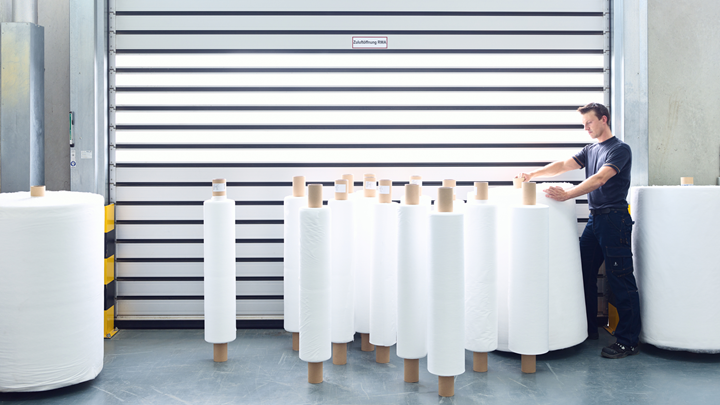Reifenhauser Converts Lab Lines to Produce Face Masks
Will operate four-shift operation 24/7 till further notice. Says it will produce enough material to make 1 million face masks a day.
Reifenhauser has converted two of its R&D lines at its nonwovens technology center in Troisdorf, Germany to full-production system for making meltblown material for face masks.
In a press released issued by the company, it said the two meltblown lines will be operated in four-shift operation 24/7, which it says will produce enough PP material to make 1 million face masks a day. Trial operations will be almost completely suspended during this period. Said Michael Maas, who is responsible for the Reifenhauser nonwoven test plant: “Due to the corona pandemic, the customer visits and tests that were actually planned have increasingly been cancelled, so that plant capacities and personnel capacities have been freed up anyway. Switching the plant from test to production operation therefore makes double sense.”

The meltblown material from the nonwoven technology center is already
sold out for the next five weeks. However, Reifenhäuser says it continues
to look for opportunities to strengthen the local supply during this crisis.
The company is in close contact with associations, authorities and other
companies, according to the release.
Added Dr. Bernd Kunze, CEO of Reifenhäuser Reicofil: “We have considered what contribution we can make in this crisis. This is of course mainly the fast delivery of meltblown lines to build up additional capacities. We have drastically reduced our delivery times here. But we also wanted to provide support at shorter notice. Until the currently lacking capacities are built up, we are therefore stepping in with the test plants in our pilot plant station. Not using this capacity now would be irresponsible in our view.”

Related Content
-
Part 2 Medical Tubing: Use Simulation to Troubleshoot, Optimize Processing & Dies
Simulation can determine whether a die has regions of low shear rate and shear stress on the metal surface where the polymer would ultimately degrade, and can help processors design dies better suited for their projects.
-
What to Know About Your Materials When Choosing a Feeder
Feeder performance is crucial to operating extrusion and compounding lines. And consistent, reliable feeding depends in large part on selecting a feeder compatible with the materials and additives you intend to process. Follow these tips to analyze your feeder requirements.
-
How to Select the Right Cooling Stack for Sheet
First, remember there is no universal cooling-roll stack. And be sure to take into account the specific heat of the polymer you are processing.













